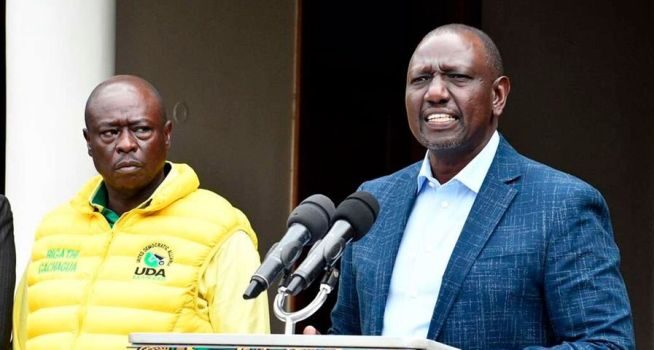Adama Barrow: Gambia’s estate agent of change
He is quiet, understated and until recently unknown, but now presidential election winner Adama Barrow has become the flagbearer for a new era of change in The Gambia.
A political novice whose lack of baggage has endeared him to Gambians, the businessman represented a coalition of parties who banded together to upset Yahya Jammeh’s 22 years of unbroken rule in the tiny West African nation.
“It’s very clear, the writing is on the wall that I’m going to win,” the 51-year-old told AFP by telephone before voting Thursday.
Just six months earlier, he was a political unknown.
Burly but soft-spoken, Barrow was thrust into the limelight following the jailing of top officials from the United Democratic Party (UDP) in July.
Seven Gambian political parties and an independent candidate joined forces to field a unifying figure, naming Barrow.
Owner of his own estate agency, he was employed at The Gambia’s largest property rental firm, and lived in Britain for three and a half years when he was younger.
His time in Britain saw him work as a security guard in London, where he developed a love for Arsenal Football Club.
A husband to two wives and father of five, he is a self-confessed workaholic, with football one of his few known distractions.
“I work 12, 13, 14 hours a day,” said the devout Muslim, insisting his faith guides every step of his life, as well as his politics.
“If you are a religious man it always influences you,” he told AFP in an interview.
For the last two weeks Barrow’s face has been plastered on car windows, brandished on campaign posters, and printed onto grey T-shirts popular among Gambian youth.
Barrow’s popularity is all the more surprising given his absence from public life until recently. However, Banjul-based diplomats say his lack of political baggage may have worked in his favour.
If his victory is confirmed, Barrow is likely to serve a three-year term at the head of a transition reform government.
A memorandum signed by all the parties involved in the coalition would guide his presidency. “We will follow that document step by step,” he said.
As a former economic migrant, Barrow understands the draw of Europe for young, poverty-struck Gambians fleeing in huge numbers to make the perilous journey across the Mediterranean.
“There is a crisis in the Gambia, that’s why everyone is taking the Back Way (migrant route),” he said, mindful that riches seldom await those leaving their homeland.
“You hear the name Europe, you think it’s heaven. It’s never like that,” Barrow said of his country, where 60 percent of the 1.99 million population is graded as living in poverty.
Barrow’s campaign benefited from social media and internet technology, which helped the opposition organise mobile rallies and avoid roadblocks during campaigning.
On polling day, he expressed concern over an internet and phone blackout that made opposition communication and media coverage of the contest difficult.
“We are not happy,” he told AFP at the time. “Gambians need to know what is going on. Social media is very important for this election.”





